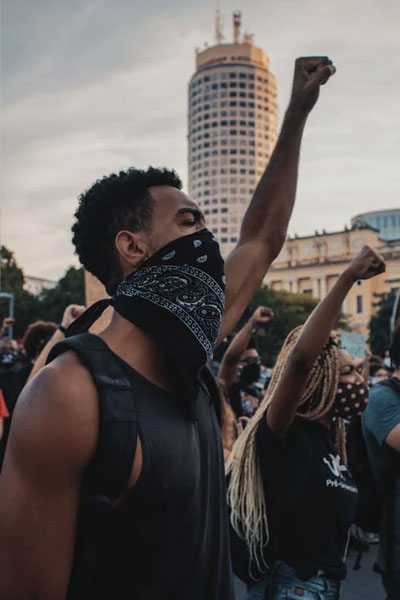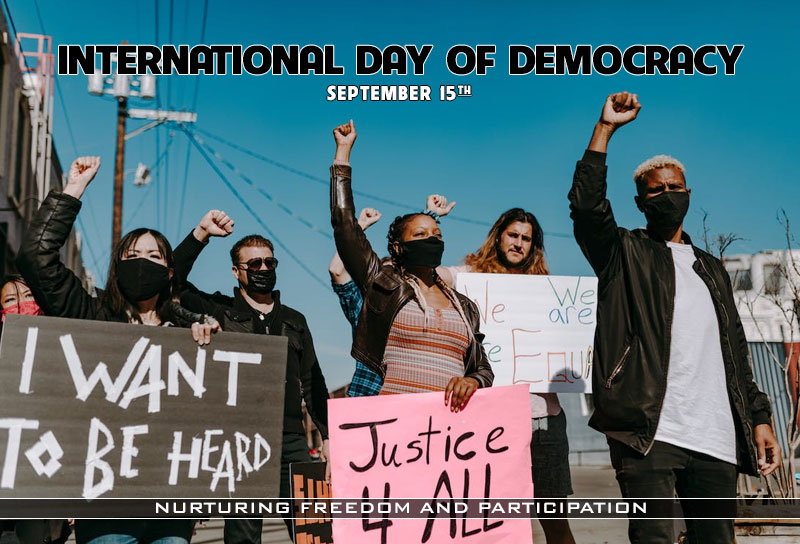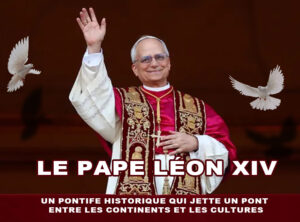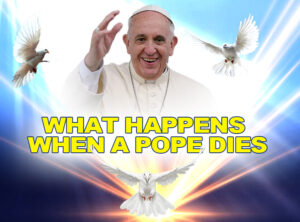Celebrating International Day of Democracy: Nurturing Freedom and Participation
Democracy, often defined as “government of the people, by the people, and for the people,” stands as one of the fundamental pillars of modern society. On September 15 each year, the world comes together to celebrate the International Day of Democracy, reaffirming its commitment to fostering democratic values, principles, and practices. This day serves as a reminder of the critical role democracy plays in promoting peace, justice, and human rights worldwide.
The Historical Significance
The International Day of Democracy was established by the United Nations General Assembly in 2007 to promote and uphold the principles of democracy. This commemorative day serves as a platform to raise awareness about the importance of democracy, both as a means of governance and as a fundamental human right. It is also a time to reflect on the progress made in democratization efforts around the world and the challenges that persist.
The Pillars of Democracy

- Inclusivity and Participation: At the core of democracy lies the idea that every citizen has the right to participate in decision-making processes that affect their lives. Democracy ensures inclusivity by granting everyone, regardless of their background, gender, or beliefs, the opportunity to vote, run for office, and express their opinions freely.
- Rule of Law: Democracy thrives when the rule of law is upheld. This means that laws and regulations should apply equally to all citizens, including those in positions of power. The judiciary should be independent, and there should be checks and balances to prevent any one branch of government from becoming too powerful.
- Accountability and Transparency: Transparency in government actions and accountability for those in power are vital to the functioning of a healthy democracy. Citizens must be able to hold their leaders accountable for their actions and decisions.
- Respect for Human Rights: A democratic society respects and protects the human rights of all its citizens. These rights include freedom of speech, assembly, religion, and the right to a fair trial. Democracy ensures that these rights are upheld and that minorities are protected from discrimination.
The Global State of Democracy
While the International Day of Democracy is a cause for celebration, it is also an occasion for reflection. The state of democracy around the world varies, with some nations experiencing robust democratic systems while others face challenges consolidating democratic principles.
Challenges to democracy include:
- Erosion of Civic Space: In some countries, civil society organizations, media, and independent institutions are under threat, limiting the space for free expression and civil engagement.
- Political Polarization: Extreme political polarization can hinder constructive dialogue and cooperation, making it difficult for governments to address pressing issues effectively.
- Disinformation and Fake News: The spread of false information and fake news can undermine the integrity of elections and erode public trust in democratic processes.
- Threats to Election Integrity: Ensuring free and fair elections remains a challenge, with concerns about voter suppression, gerrymandering, and foreign interference.
- Authoritarianism: Some nations are backsliding into authoritarianism, with leaders concentrating power and weakening democratic institutions.
The Role of Individuals
As we commemorate the International Day of Democracy, it is crucial to recognize the role individuals play in upholding democratic values. Citizens must actively engage in the democratic process by voting, participating in civic activities, and advocating for accountability and transparency. Active citizenship is the lifeblood of democracy.
Conclusion
The International Day of Democracy serves as a reminder that democracy is not a fixed state but an ongoing process. It requires constant vigilance, commitment, and engagement from citizens, leaders, and institutions alike. Democracy is not just a form of government; it is a way of life that champions freedom, equality, and justice for all. On this day, let us renew our dedication to these principles and work towards a more democratic and inclusive world for generations to come.
Author
Stay connected for new publications, events, and more.







More Stories
Le pape Léon XIV : un pontife historique qui jette un pont entre les continents et les cultures
What Happens When a Pope Dies
Le Prix de la Liberté : 17 Avril 1825, une Ordonnance Injuste. Déclaration de Macron